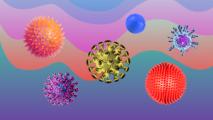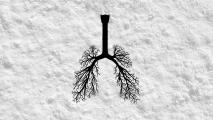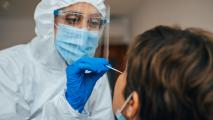On August 22, over 4,000 people will file into an indoor stadium to enjoy a free concert by pop singer Tim Bendzko.
Given the ongoing pandemic, most experts would probably advise against having that many people gather in one place — but this concert is actually being organized by German researchers to study COVID-19 transmission.
Their hope is that, by tracking how people behave during the concert, they’ll be able to figure out how to restart the live events industry in Germany — and worldwide — as safely as possible.
COVID-19 Transmission at Live Events
Researchers at University Medical Center Halle are currently looking for 4,000 volunteers, between the ages of 18 and 50, for their $1.1 million “Restart-19” experiment.
These volunteers will attend the day-long August event, which will play out three different concert scenarios.
For the first, volunteers will enter the 12,000-seat venue through two doors and take their seats next to one another — this scenario mimics what they would have done prior to the pandemic.
After Bendzko performs, the volunteers will leave the arena for a short break before the second scenario begins. During this one, they’ll enter through eight doors and sit with an empty seat on either side of them.
Again, after the performance, the volunteers will leave the venue. Only 2,000 of them will re-enter for the third scenario, during which they’ll sit 1.5 meters apart from one another.
The researchers will give every volunteer a face mask to wear during all three scenarios, but there is a chance of COVID-19 transmission between attendees during the experiment.
To minimize this risk, the researchers will ship every volunteer a free at-home coronavirus test to take 48 hours before the event — only volunteers who can prove they’ve tested negative will be allowed to enter the venue.
Eyes on the Virus
To understand how live concerts might cause COVID-19 transmission, researchers will give every volunteer a tiny contact tracing device to wear around their necks during the experiment.
This tracer will note the volunteer’s location every five seconds, giving the researchers a way to see where they go during the concert and how many other people they come in close contact with.
Fluorescent hand sanitizer and fog machines will help researchers study COVID-19 transmission.
The researchers will also distribute special fluorescent hand sanitizer to concert goers. After each scenario, they’ll use UV lights to identify any places that might be hotspots for touching.
Finally, they plan to use fog machines to help them see how the virus might spread through aerosols during a concert.
After the researchers analyze the data they’ve collected from the experiment, they plan to present their findings in early October to help officials understand the potential for COVID-19 transmission at live events.
“As long as infection threatens, neither large concerts and trade fairs, or sporting events can take place,” Armin Willingmann, minister of economics and science for the German state of Saxony-Anhalt, told IQ Mag.
“That is why it is so important to find out what technical or organizational framework conditions can effectively minimize the risk of infection,” he continued. “With Restart-19 the University Medical Centre Halle is pioneering work for a new start of the events industry in Central Germany and beyond.”
We’d love to hear from you! If you have a comment about this article or if you have a tip for a future Freethink story, please email us at tips@freethink.com.






